McMaster community remembers those lost to gender-based violence
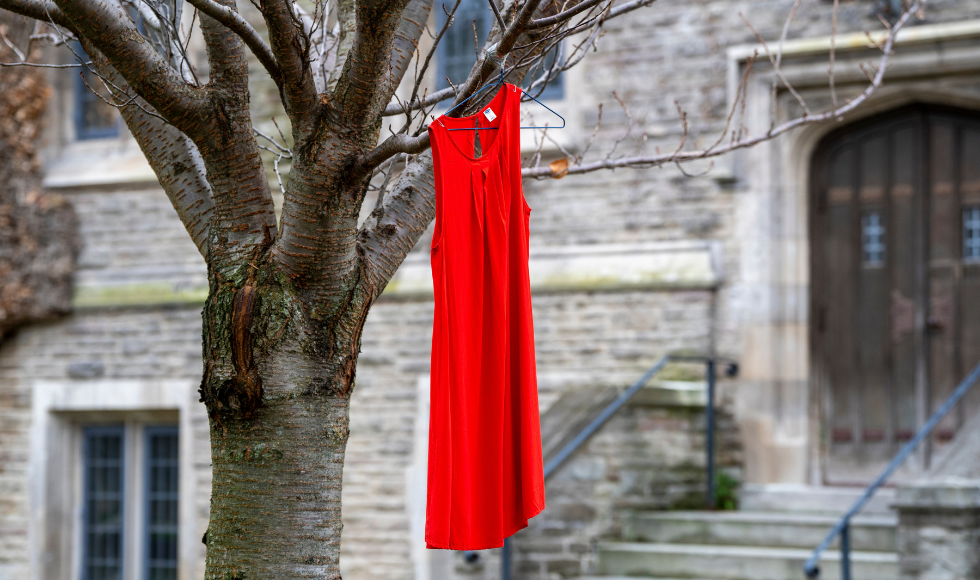
The university community commemorated the National Day of Remembrance and Action on Violence Against Women at a number of events and observances.
The McMaster community commemorated the National Day of Remembrance and Action on Violence Against Women on Dec. 6. This is an annual observance that honours the memory of the 14 women killed at École Polytechnique in Montreal in 1989, and all those impacted by gender-based violence, including the thousands of missing and murdered Indigenous women, girls, trans and Two-Spirit people.
Here is a look at some of the commemorations organized by the university’s Dec. 6 committee of students, faculty and staff:
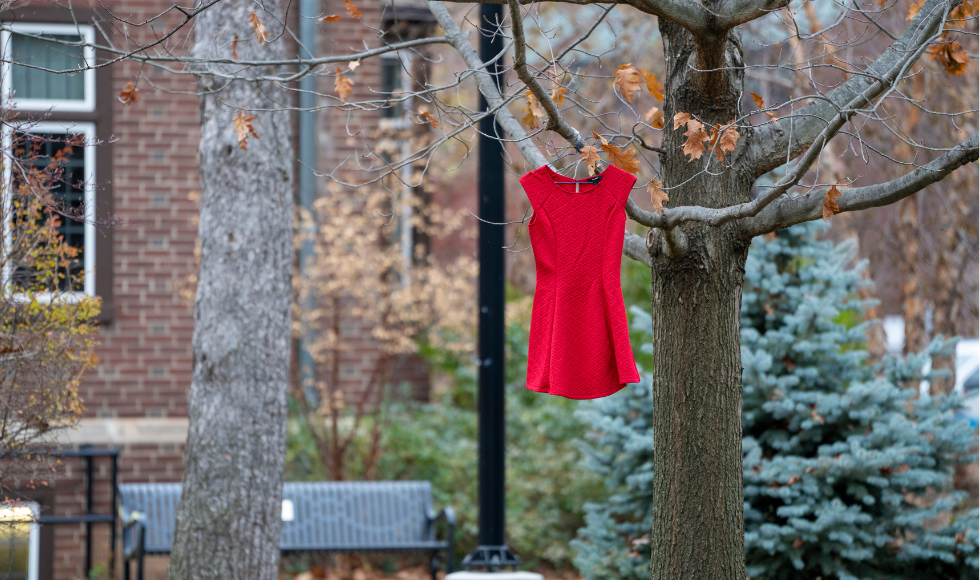
Across campus, red dresses were hung on trees, poles and other fixtures as part of the REDress Project, an installation by Winnipeg-based artist Jaime Black, started in 2010. Originally placed in downtown Winnipeg, red dresses have since been displayed in installations across the country as a way of drawing attention to the ongoing crisis of missing and murdered Indigenous women and girls.
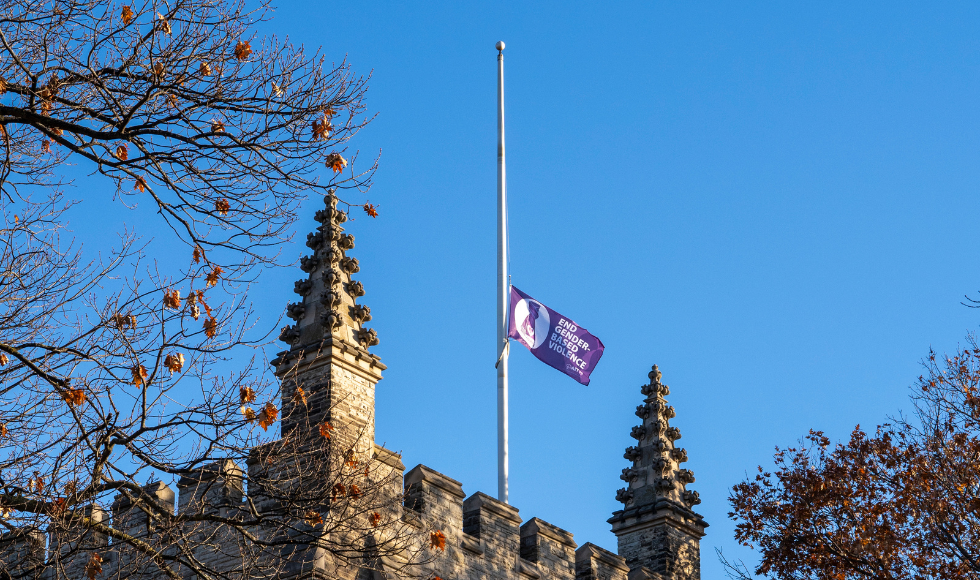
A purple flag flew at half-mast on University Hall, in recognition of the Wrapped in Courage campaign. McMaster is a proud community partner of Hamilton’s Woman Abuse Working Group (WAWG), which is helping lead the campaign in focused on ending gender-based violence in our community and beyond.
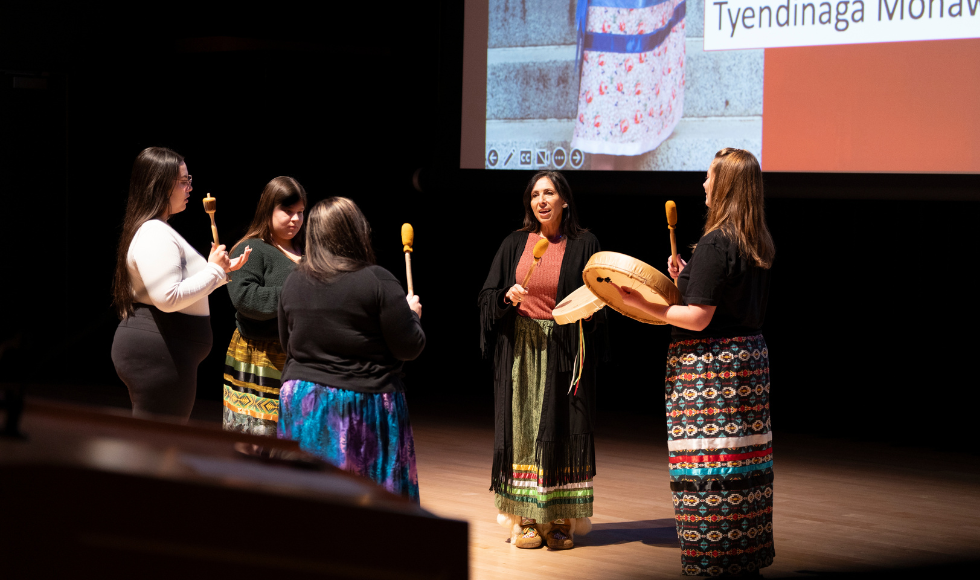
More than 60 people came to a lunchtime panel discussion on gender-based violence, Conversation for Change, at L.R. Wilson Concert Hall, including President David Farrar, Chancellor Santee Smith and Provost and Vice-President (Academic) Susan Tighe.
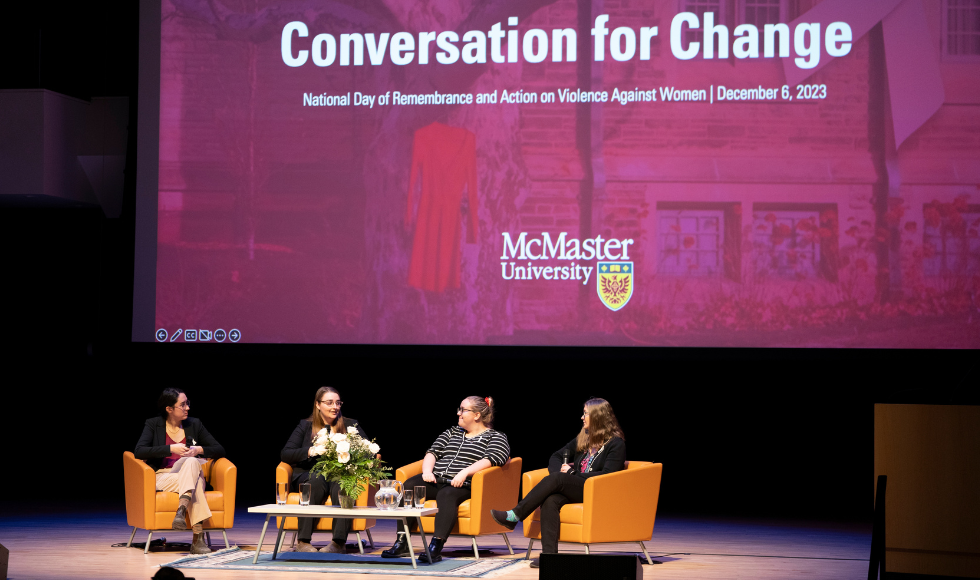
Mechanical Engineering and Management student and EDI Resource Coordinator for the McMaster Women in Engineering Society, Angela Lewis, emceed the event, which was livestreamed.
“Who’s in your space makes a big difference in how welcoming and safe you feel in that space,” noted panellist and engineering professor Kim Jones.
“We have to think about who’s included, respected, othered and excluded. Violence starts with disrespect, with othering, and not feeling like someone belongs. It’s a continuum that can have tragic consequences,” said Jones, who is the chair of the Ontario Network of Women in Engineering.
“Seeing protests and people in real time demonstrating and doing important work, you feel real solidarity happening. That’s exciting and moving. As much as there are moment of feeling really heavy in this work, I see moments of hope, imagining futures we haven’t seen yet.” – Maddie Brockbank, PhD candidate and Vanier Scholar in the School of Social Work
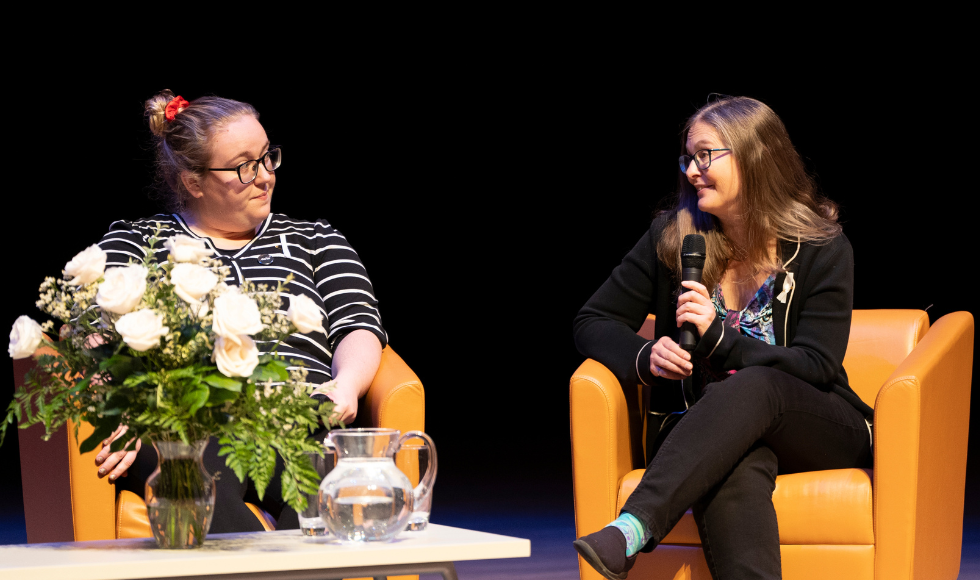
“Allyship and activism are ongoing. It’s not the responsibility of people with lived experiences to do this work. It should be a collaborative effort. It’s important our allies are engaged and thinking about what it means to be an ally, challenging systemic barriers and standing up together.” – Sarah Woods, Level IV Chemical Engineering & Management student and Co-President of the McMaster Women in Engineering Society
The event concluded with the reading of the names of the 14 women who died in the Montreal Massacre and a moment of silence.
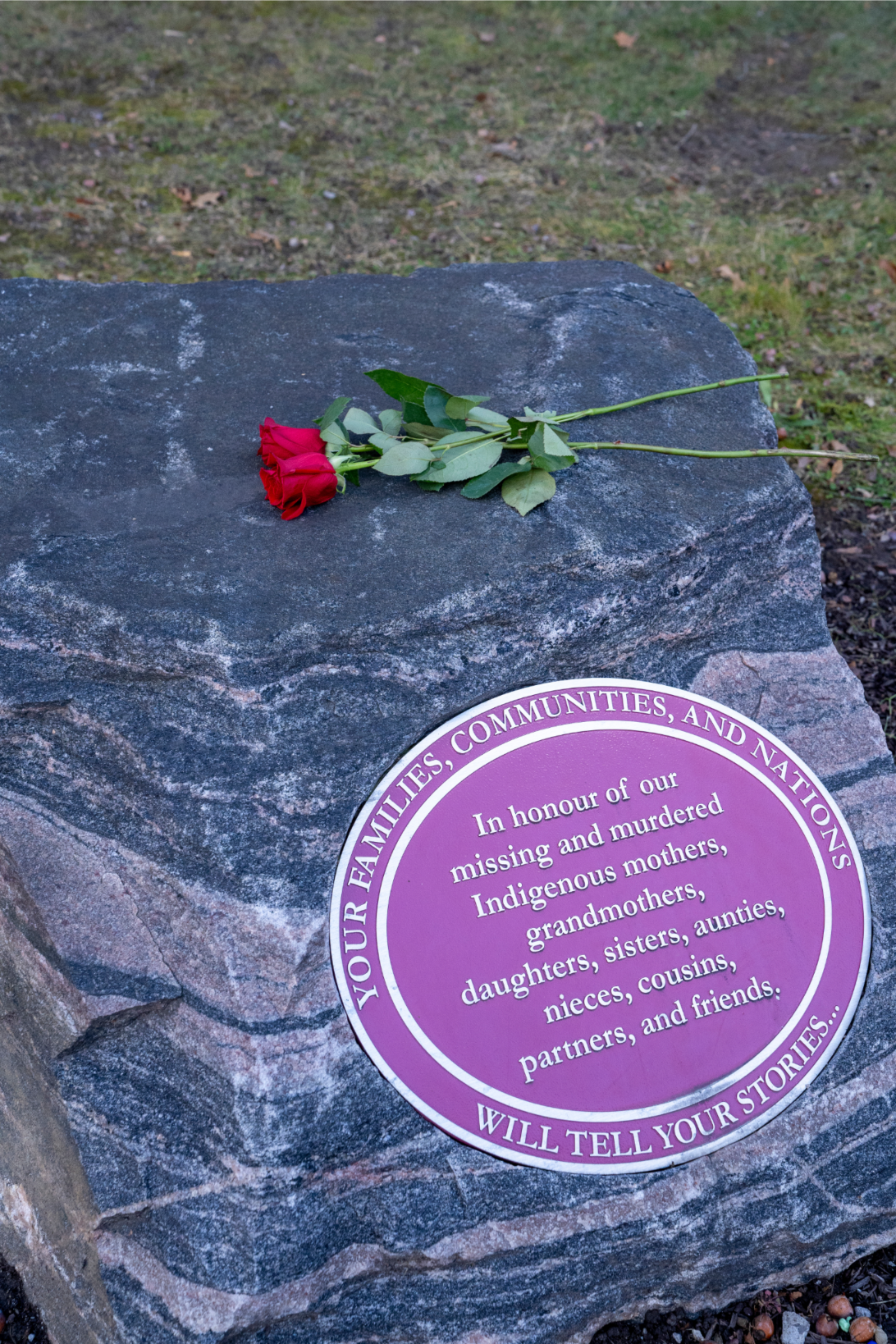
Following Conversation for Change, a group of McMaster students, staff and faculty embarked on a Memorial Walk across campus. A rose was placed at each memorial site and members of the pan-institutional Dec. 6 planning committee shared history or important facts with the group.
There was also a fire and tobacco offering at the Indigenous Student Services outdoor space.
Dean Heather Sheardown, Faculty of Engineering, shared her reflections on this day of significance.
If you or someone you know needs support, here are some resources for the McMaster community.

